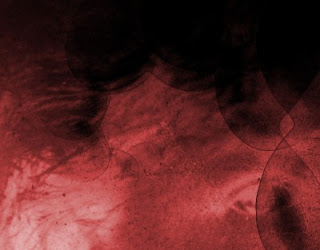Art is about making, then filing; tunnelling like a miner, and shoring up the tunnel. I seem to spend a lot of time shoring up. This is natural, a part of life as much as art or anything. A band who writes an album, shores it up by touring for a year and playing that same music to people. They probably and apparently love this, but for me, the creating of new things is such an overwhelming drive. I feel guilty when doing anything but that and frustrated by paperwork when new and great idea call me.
I also have a natural dislike of sharing my work generally. This comes from my childhood, perhaps a Catholic guilt complex, but perhaps more-so the attitude of my parents and how much they dislike and belittle everything I do; art, music, computer programming, the way I look, speak, and everything else. This doesn't matter much, fundamentally. I know what I want, my drive to create, learn, and improve myself, and, in my hope, humanity; but I have been trained to fear sharing anything by the attitudes of those around me.
Today I made the last two lyric booklets, for Gunstorm and The End And The Beginning, which I'd forgotten yesterday. I sang along to both, enjoying it for the first time. I'm certainly, today, a better singer than ever before. Singing is a constant, lifelong, skill which takes many years to reach any sort of acceptable level. It is the very difficult physical challenge of singing which I love. I love everything which is difficult. I hate cheating, and winning, ease. Struggle is wonderful.
Everything I can do now is and will be better than anything I've done before, but this also means that my endeavours of the past seem poor. We don't know how bad we are at something until we become good at it; but whatever our stage, things are never perfect, though hopefully improving steadily, drip by drip. I could have spent the past two or four years training with singing, guitar playing, piano playing, studio production; but I spent it doing and that was and is my training. For me this is ideal. I have a record of my progress, and I've recorded a few of the hundreds of songs, 1897 at the current count, I've written. To 'train' and produce nothing would be such a tragedy. I'd much rather act as I have, to create, learn, grow. Much rather have a huge and unmanageable back-catalogue of works of variable quality than produce one or two strained objects - which would still never be perfect. The secret of art is the joy of creation. I know that everything I make will be better than before, that everything of the past will look ugly, poor, crude, that things of the present will be better than ever, and that this trend will continue until my senses and physique, or a failure of resources, fail me.
After making the booklets, Deb and I dashed around town on a super-efficient shopping trip; four shops and home in under an hour. I've spent the time since working on an Ownership Record for my artworks, but it's yet another layer of administration and bureaucracy to cause me frustration. It may help. I've already discovered and fixed a few errors in my painting ownership list due to it. Why does it matter if I know who owns what? It can be a little silly... would a young Elvis want a list of the people who have bought each record? For paintings it can matter, the 'provenance', but artists generally leave that to historians and don't care themselves. I know the importance of these data in counteracting entropy. Entropy, decay; the enemies of survival, of truth, of success; so it's for rather odd motivations that I keep such records. They are a manner of shoring up the tunnel, but yes, for each music sale, for each book sale, it's less important. I only store 'notable' sales for mass-produced items.
If I can complete this record in a day, then it's fine, then I can update it forever from now on. I don't want to waste too much time on it; I have the data anyway - it's in my painting record, but putting it all together gives me the option of making it public and easy to access. It may inspire collectors.
I'll also continue to work on the sheet music for all of my albums as part of the filing process. Elton John apparently wrote and recorded four songs in a day for Goodbye Yellow Brick Road, but he didn't write the lyrics (obv.), his music generally sounded the same, and he didn't play all of the instruments like I have to, didn't act as recording engineer and producer, didn't program his audio software, or build or engineer any of his instruments, didn't design, format and scan the album artwork, publish the lyrics and the sheet music, he didn't write, direct, and film all his music videos, develop Spotify canvas animations, or manage all of his bookings, the legal registration of his work, or any of the other countless jobs I do, and have done, every day for most of my life. Long may it continue.
I am the Sisyphus of the two rocks. Long may I roll both with joy a defiant roar.















